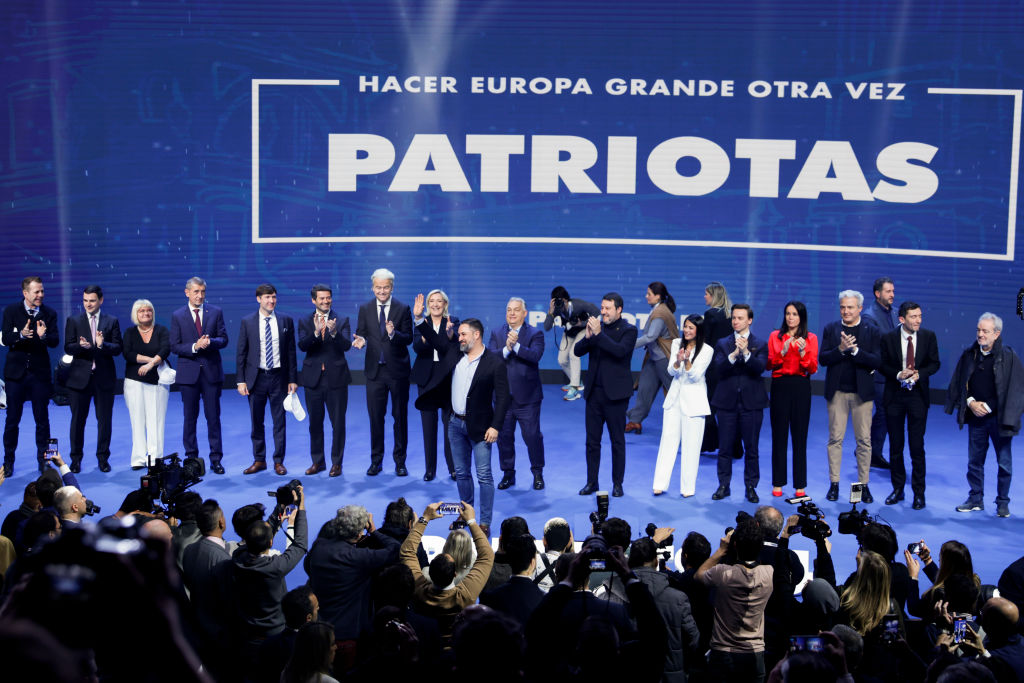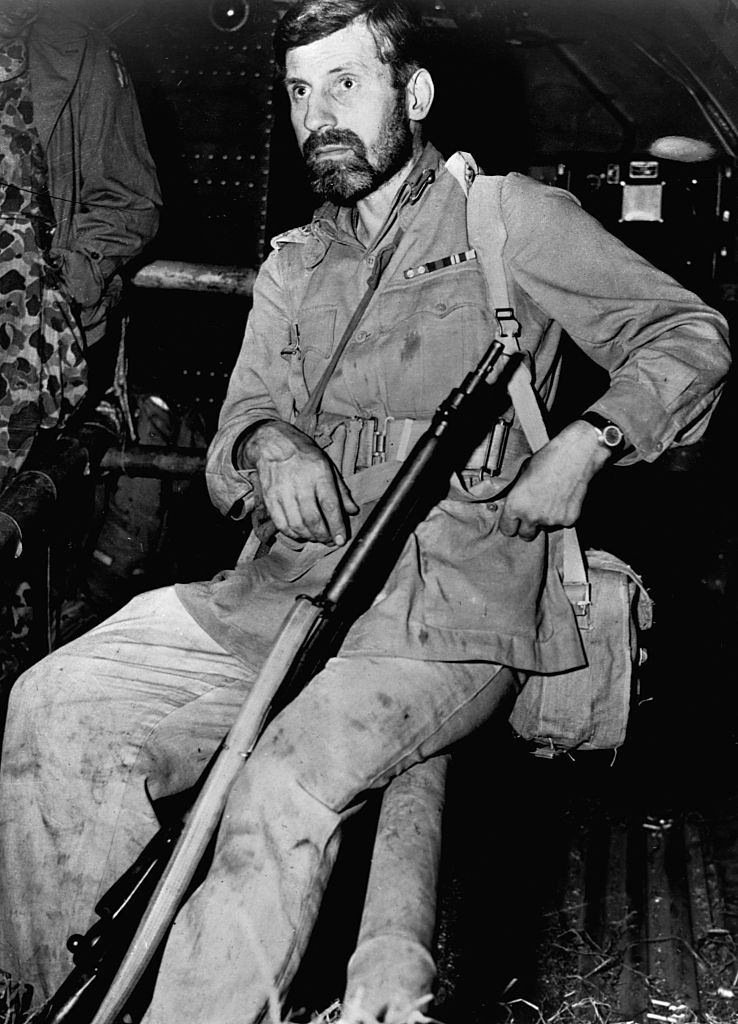Realpolitik is the virtue-free art of the politically possible. It is not the artistic possibilities of political virtue or even the virtuous possibilities of artistic politics. And so on. Benign options do not exist when dealing with a murderous creature such as Vladimir Putin. All agreements with him are morally insufferable, but probably not as insufferable as the consequences of non-agreement. What are those consequences? We don’t know. We can speculate, but speculations by benign western liberal imaginations can seldom match the sordid realities of organised human evil.
Did all those American students in the 1960s who chanted “Hey, Hey, LBJ, how many kids did you kill today?” ever imagine that the communist forces they regarded so fondly would when their time came murder millions of civilians in Vietnam, Laos and Cambodia? Inaction also has its murderous price, as the appeasement of Nazi Germany had earlier shown. Seemingly similar errors of judgement are seldom similar in their outcome.
So, consequence-free, fireside moralising is easy, whereas entering the rat-infested sewer of the Kremlin and doing a deal there is less so. The terrifying, terrible truth is that Putin has political legitimacy, having achieved an electoral mandate from the Russian people for his war against Ukraine. That we – and certainly I – don’t understand how they could have done this is irrelevant. Most of us don’t understand Greek grammar, DNA, or diesel engines either, but each in its own way works. What we do understand is that the Ukraine war must be ended as quickly as possible, before that poor unfortunate country is down to its last grizzled soldier in the midwinter mud, and a largely unpeopled wasteland is added to Moscow’s empire.
Enter another unpredictable element: Trump. Making sense of his fractured, grammar-free syntax is like analysing a Dead Sea scroll that has been gnawed by weevils, scorched by sunlight and desiccated over aeons, so that only dusty fragments remain. Did he really mean that Ukraine had started the war? Since his pronouns are often disconnected from any substantive nouns, almost any interpretations of his pronouncements are possible. He cannot unsay those terrible words They should never have started it. No doubt they have entered the Kremlin’s heraldry, in which, where, gilded and framed, they have become are today the legend on Putin’s coat-of-arms, over a brace of crossed cut-throat knives and two vials of hemlock.
But who starts any war is less important than who ends it, and on what terms. The conditions on which Trump has proposed to settle the conflict are far more ingenious than most observers have realised. His proposal to acquire Ukraine’s mineral and rare-earth rights in a postwar settlement is not, as was recently claimed in The Daily Telegraph, an attempt to turn the country into “a US vassal state”. The legal lien that the US would have over Ukraine in terms of both territory and assets would essentially mean that any further, post-settlement Russian assault on Ukraine would be a direct attack on American interests. Ideally, this would not be met with armour and airstrikes locally but would serve as an implicit authorisation for nuclear strikes on the Kremlin and on Putin personally, wherever he and his family might be. This could only be by a secret and officially-deniable codicil, for Putin would never submit to overt threats. What Russian ever could or would? Yet thereafter this Drone of Damocles would surely intrude on all his meditations about renewing the war.
The important man to listen to here is JD Vance. He is thoughtful and wise, and most importantly, speaks in analysable sentences, and if he has said a word that I disagree with since his election as Vice President, I have not heard it. He is right. Europe’s conduct over the past fifty years has been utterly contemptible, which is why Russia, a third-rate, corrupt, rundown and incompetent post-Communist kleptocracy with a declining population and a sordidly incompetent army has been allowed to become a threat to the civilisation that invented the modern world.
But this “Europe” has only achieved peace and unity (of sorts) when both have been brought to the landmass by the bayonets of the Anglophone common-law countries on its peripheries and across the Atlantic and Pacific. This bizarre but nonetheless vital alliance is today embodied in the Five Eyes intelligence alliance of (alphabetically) Australia/Canada/New Zealand/UK/USA, with the last component of course being the most important. This pact was conceived eighty-four years ago this month at a meeting between UK and US intelligence agencies in Bletchley Park.
For decades, EUrophiles have argued that it was the EU that brought lasting peace to the continent that had previously hosted two world wars. Events have shown otherwise. It was NATO, a military offshoot of three of the Five Eyes, that brought peace, whereas the EU militarily achieved nothing. On its watch, Yugoslavia dissolved into a semi-genocidal civil war that was ended largely by US intervention. There can hardly be a more damning indictment of Europe’s pusillanimity than the leadership for this initiative came from Bill Clinton, an utterly unprincipled, solipsistic and spineless creature, but nonetheless more of a man than those sleek and self-regarding gunless zealots who shaped and ran the EU.
The steady erosion of Europe’s military capacity has been matched by the growing enlargement of its military aspirations, usually a characteristic of African regimes such as those of Amin or Bokassa. This process was accentuated by Brexit, though the UK’s departure was not marked by an increase in British military awareness but the opposite. The term “hollowed-out” usually describes an organisation that lacks substance beneath a veneer, but in Britain’s case, not even the veneer remains, just a DPM hologram. The British Army is quite incapable of even deploying a full brigade of peacekeeping soldiers in a post-war Ukraine, while British artillery possesses just fourteen 155mm guns. Poland has six hundred.
Yet incredibly, apart from Poland, the UK’s armed forces are in a far better condition than those of most European countries, which do not even have rifles in common, never mind interceptor-fighters. When the European Commission’s (unelected) president was German minister for defence, she sent soldiers on Arctic exercises armed with broomsticks, had a fleet of surface-only submarines (very useful) and ordered main battle tanks to be redesigned so as to accommodate pregnant drivers. “Pathetic” comes to mind, though perhaps “Ugandan” is better.
The concept of “Europe” as an armed and united entity is a serial delusion that perhaps deserves psychiatric remedies. Instead, for many in the EU, these hallucinations have been turned into concrete facts – “lazy, ahistorical nonsense”, as Vice President Vance correctly called them. Such mental fevers have enabled Europe’s many armchair warriors to denounce any realistic US policies towards Russia as “appeasement”. Europe must face this historical truth as immoveable as the Alps: the USA is not going to go to war for it ever again, and if Europe wants Americans to supply the backbone of Europe’s defence, they will only do so as mercenaries whose entire costs – bullets, billets, buns and burgers – are fully covered by the protected countries. Implicit in this is for Europeans finally agreeing to US demands that they raise their defence budgets to 5 per cent of the GDP, which means more than doubling them for most, though in Ireland’s case, this would require a twelvefold increase.
Such budgetary expansions will have no impact on the ending of the war in Ukraine. Arguments that Russia cannot economically, socially or industrially maintain its war-efforts for another eighteen months ignore the certain truths that US aid to Ukraine will have stopped long before then. Expecting the grievously under-armed EU to make good the resulting shortfall in weapons, munitions and money is the equivalent of asking Chad to compensate Swiss resorts for their poor snowfall. In the meantime, Ukraine would comprehensively have learnt the true meaning of old, cold and mould. It cannot go on.
Apprehensive or paranoid Europeans must understand that the revolution in US policy towards Russia is not a modern-day re-enactment of the Ribbentrop-Molotov Pact of 1939. This turned the two rival socialist blocks – one Nazi, the other Marxist – into mutually-cooperative allies that consumed Poland and the Baltic states and divided Romania. Caricatures of Trump and Putin that make such an analogy or say that the American Right admires Putin and wishes to emulate him simply do not understand “America First.” It means just that and no more than that.
The USA’s existential interests are focused on Russia’s altogether more threatening ally, China, which in addition to its military build-up has, with quite strategic brilliance, economically insinuated itself into the vital supply-chains of the US and EU. (How the US joint chiefs-of-staff today must be silently cursing Nixon and Kissinger for unconditionally bringing in the Communist Chinese from the isolation that they so richly deserved – and, by God, still do). Meanwhile, a demographically unreproductive and culturally stagnant Russia will over time inevitably wither and fade, with the US intending neither to hasten nor retard its biological decay. If Russia ever erupts in a pre-mortem frenzy, as dying creatures sometimes do, Europe must deal with it largely unaided, just as it dealt so successfully with Napoleon 210 years ago this May. History seldom teaches us useful lessons: Waterloo is an exception, though this time we have neither a Prussian Blucher nor an Irish Wellington to guide us through any such ordeal. Perhaps from their generous Germanic and Hibernian demographic intake, the Americans might consider lending us a Schwarzkopf or a McChrystal in their stead. Otherwise, we’re on our own.
Kevin Myers is an Irish journalist, author and broadcaster. He has reported on the wars in Northern Ireland, where he worked throughout the 1970s, Beirut and Bosnia.





Ireland, a rich parasite too mean and lazy to defend itself or Europe